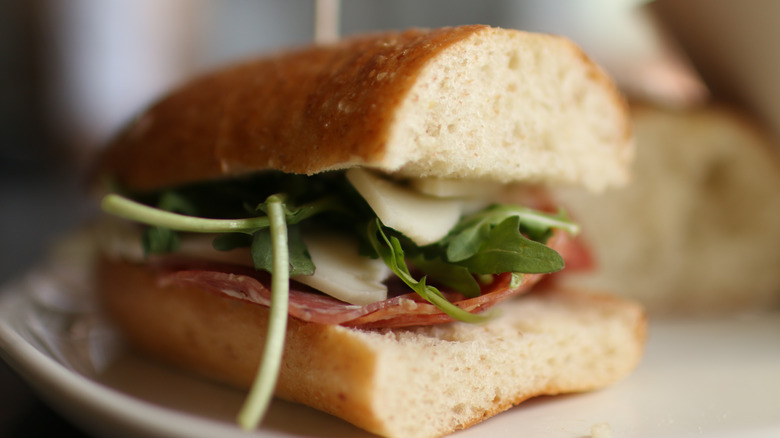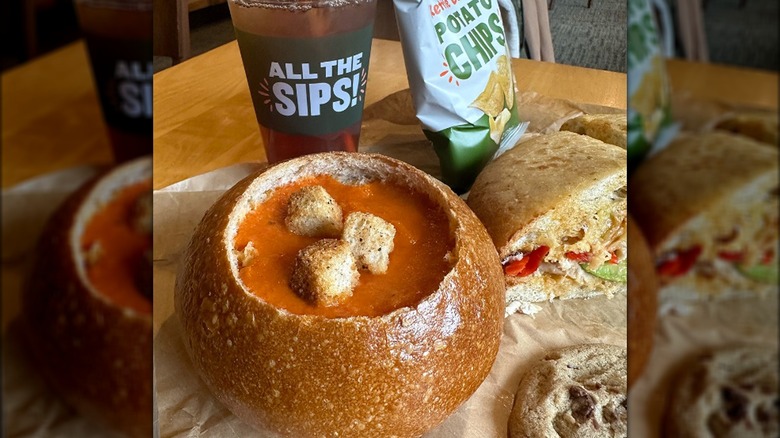Is Panera's Sourdough Bread Actually Real?
Much like Panera's lackluster rewards program, Panera's sourdough is similarly disappointing — it isn't real sourdough. Sourdough is the oldest enduring type of bread. Rather than using baker's yeast as the leavening agent, true sourdough is a microbial orchestra of sourdough starter that ferments over time, producing natural yeast and acidity. Flour, water, and salt are fermented by a live culture of lactic acid bacteria, which feed on the yeast, transforming the bread and creating its signature sour tang.
True sourdough needs to rise for 12 to 24 hours and ferment for another 18 to 36. Alas, the industrial world doesn't have time to wait around for natural processes like these to take place. Instead, manufactured bread-making mimics the results of natural fermentation via synthetic additives and vigorous kneading, abridging the complex process into a single hour. This is called the Chorleywood method, and it creates a consistent, readily accessible, but ultimately lower-quality product.
Manufacturing also reduces the number of bioavailable vitamins and minerals, making the bread far less nutritional and harder to digest. Long fermentation is what makes bread molecules digestible to many gluten-sensitive consumers. To find true sourdough, you're better off swinging by your local small-scale bakery or farmers market, and don't be afraid to ask questions. Anybody who's making sourdough loaves the old-fashioned way will be excited to tell you all about their cultured starter, which you won't find at Panera.
Panera's sourdough loaf is a far cry from classic
Panera published a "Behind the Counter" video all about its breadmaking process, and even after nearly two minutes of explanation, the actual particulars of the process remain a mystery. At no point did the chain reveal how it actually makes its bread, instead favoring vague generalities like "We combine those old-world styles of pre-ferments and handling and shaping bread, but marrying that with the technology of the present day" — which, considering the steps of the Chorleywood method, is probably technically true.
The Panera website lists the full ingredients of its "Classic Sourdough Loaf," and they're a far cry from true sourdough's minimal lineup of flour, water, salt, and live culture. In addition to wheat and malted barley flour, the sourdough starter contains folic acid. The loaf is also made with the artificial "dough improvers" microcrystalline cellulose, ascorbic acid, and corn starch.
Microcrystalline cellulose is refined wood pulp and doesn't degrade during digestion and the body cannot absorb it. Ascorbic acid and corn starch are synthetic GMOs. Vitamin B9 occurs naturally as folate, but folic acid is the synthetic form of vitamin B9, aka pteroylmonoglutamic acid, another common chemical additive in many processed foods, and your stomach can't process it. Folic acid needs to be metabolized out of the body by the liver.

